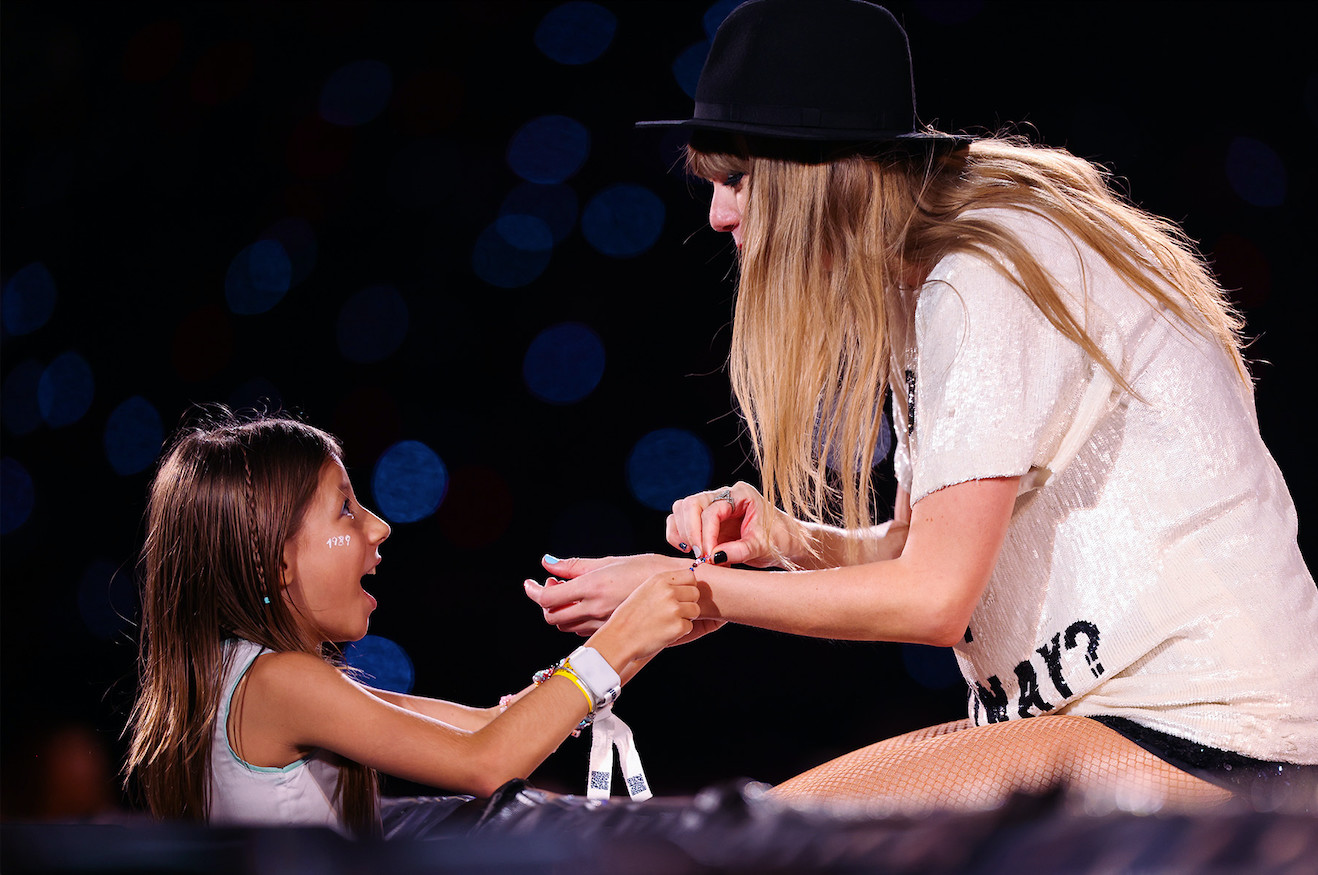
‘Dear John’: Taylor’s responsibility to her Swifties

Taylor Swift has redefined fan engagement in the digital age, but that fandom comes with a responsibility to call out Swifties behaving badly
Published 8 February 2024
If you’re on Instagram, head to Taylor Swift’s account. This record-breaking artist – admittedly one of the most influential of our time – has in excess of 280 million followers.
You may have also noticed that Taylor used her record-breaking Grammy win to announce the release of her new album, The Tortured Poets Department. And it’s fair to say, those 280 million followers lost their collective minds.
In fact, a recent American survey found that some 53 per cent of US adults say they are fans of Swift.
That’s a lot of fans. And the most avid among them identify as ‘Swifties’.
Swift’s close relationship with her millions of fans is legendary. She has redefined fan engagement by connecting with them on social media, hosting secret listening sessions and even sending personalised gifts.

It’s her level of fan interaction has set a standard for artist-fan relationships in the digital age.
And she has a lot of influence.
During the Minneapolis stop on the Eras tour in 2023, Taylor Swift explicitly asked her fans not to troll her exes on social media as she launched into a tour-first performance of the song ‘Dear John’.
That Swift’s fanbase has a history of ‘going after’ the popstar’s critics (and other fans) and the fact that the singer herself intervened here raises some interesting questions about the ethical responsibility that celebrities have in both mobilising and managing their fandoms.
Fandoms are, at their core, communities.
They develop their own language with specific vocabulary and imagery; define the boundaries of membership; create rules for how members interact with each other; and have a shared purpose to support the person they love.
All of this creates the parameters of the community and, importantly, sets up the social norms for behaviour in the community.

Now, obviously, there are a few different areas of the Taylor Swift fandom, so it’s useful to think of them in the same way you’d think of a social media platform – like Reddit – it’s a community of communities.
While a lot of celebrities keep themselves at a distance from their fans, allowing them to find their own ways of engaging with their work, Swift has been far more active with Swifties. She is really the first artist to use social media to build up and directly engage with her fans on a far more personal level.
For example, she’s known for dropping into people’s DMs with encouraging words and she often hosts Secret Sessions, listening parties for fans before a new album drops.

All of that helps her to form stronger bonds with her fans.
Swift also provides her fans with plenty to engage with outside of her music. She has openly talked about her use of Easter eggs – dropping hints and clues about upcoming albums, song titles and track listings through interviews, lyrics, videos and even in what she wears.
As a result, Swifties engage in what the cultural theorist and fan studies scholar Henry Jenkins calls “fan surveillance”. They find and discuss those clues amongst themselves: like, do the recent snake motifs in accessories and green dresses mean we’re getting Reputation TV?
All of this is the type of work that a community manager usually does – engaging with the fan community and fostering a sense of belonging and connection is the hallmark of all communities. But in this case, it’s Taylor herself managing her own community.
A lovely example of this is fans making “friendship bracelets” and exchanging them with one another at each stop of the Eras Tour.

While Swift has undoubtedly used her role as head of the community with an emotional connection for positive ends – calling on them to register to vote in 2018, ahead of US elections and again in 2023, which resulted in massive spikes in registration – there have also been examples of her fandom actively trolling people.
This has emerged when some fans police people they don’t believe are ‘true fans’ because of a perceived slight against Taylor or as a direct result of something she has posted about.
For example, in 2020, Swift called on her fans to support her in her fight against record executive and celebrity manager, Scooter Braun, as she tried to regain ownership of her masters. This resulted in death threats against Braun (which extended to members of his family) – behaviour that enters the realms of criminality.

While ensuring that members of a community remain engaged and supported within a community – that sense of belonging – community managers also have a responsibility to ensure that the community is well governed and negative behaviours are dealt with effectively.
While there have been discussions about whether a celebrity should take more responsibility to call out fans when they behave badly, most people think the responsibility comes down to the individual fans themselves.
Given the evidence of Taylor Swift taking on the role of community manager, I believe that she does have more responsibility here.
This brings me back to the idea that fandoms are like social media platforms. When we talk about social media or community governance, we talk about it in relation to the other governance that exists around it.
This includes the regulations set by the platform itself, as well as service providers and even government regulations - both national and international.

Of course, at the centre of all of this, communities that exist on a platform have their own guidelines. This is often called a “nested model” of governance or, what I call, the onion of governance.
All of this is done to ensure that these communities are pleasant and we want to continue hanging out in them.
When it comes to communities that are attached to a brand, and Taylor Swift is huge brand, the behaviour of those communities can also impact on the reputation of the brand.

Arts & Culture
‘Fearless’: How Taylor Swift is owning her narrative
So, when it comes to fandoms like Swifts, there’s a case to be made that the celebrity is responsible for setting the overall rules for the fans - setting their own platform governance.
What could this look like? Well, it could be as simple as the celebrity determining the type of behaviour that’s acceptable and then moderating that behaviour.
That would mean calling out instances of fans behaving badly and reminding fans that this kind of behaviour is unacceptable (both to the community and the celebrity).
I mentioned earlier Taylor doing just that in Minneapolis.
This doesn’t mean that fans will always behave – people in all communities often do things that go against community guidelines - but it does help to reinforce the norms in the community.

So, should Taylor Swift more actively manage her fans? As a community manager, yes. As a savvy businesswoman with an eye on her reputation, absolutely.
And if you’re a Swiftie, the next time you think about trolling someone in Taylor Swift’s name, think about the reputational damage you may be causing your idol.
Swiftposium is an academic conference for scholars discussing the impact of Taylor Swift. It runs at the University of Melbourne from 11-13 February 2024 with public events on Sunday 11 February and recordings of the keynote presentations available online after the conference.
Banner: Taylor Swift performing her ‘Speak Now’ era in Buenos Aires/Getty Images
